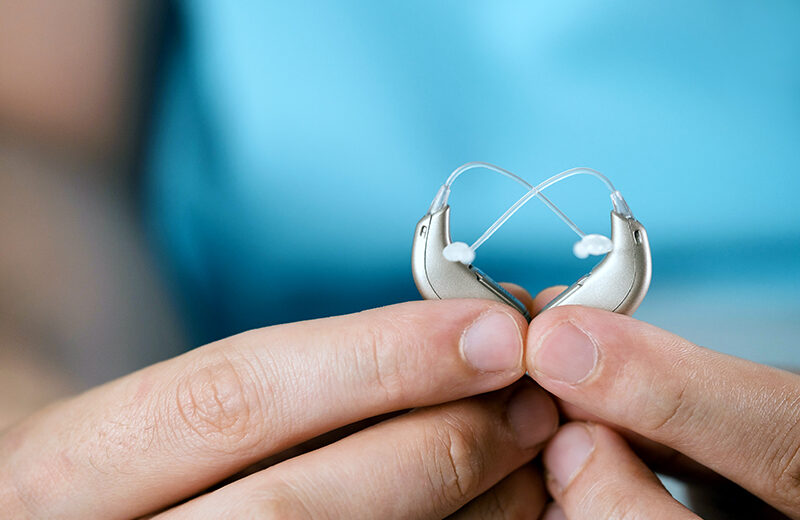Disregarding the use of hearing devices could lead to missed opportunities. It is imperative not to store away hearing aids prematurely; instead, you should wear your hearing aids every day. Despite the initial fitting with advanced technology, some users abandon the consistent use of their devices. Consequently, rather than facilitating enhanced auditory ability, improved well-being, and active participation in social activities, the hearing aids remain dormant, accumulating dust in a storage container or drawer.
If you or a family member can identify with this situation, rest assured that you are not alone. A UK study suggests that 1 in 5 individuals with hearing aids choose not to utilize them. However, abstaining from recommended hearing technology can impact one’s capacity for effective communication and significantly influence overall health. It is imperative not to forgo hearing aids even for a single day.
Reasons to Wear Your Hearing Aids Every Day
Hearing Issues Are Also Chronic Conditions
It is imperative to recognize that neglecting the management of hearing loss is a concern equivalent to disregarding the treatment of asthma, diabetes, or cataracts. Hearing loss, a prevalent and persistent physical health condition, typically progresses over time. Without timely intervention, the likelihood of recuperation or effective control diminishes.
Increased Dementia Risk
Are you aware that hearing loss can lead to social isolation and increased cognitive effort, thereby significantly elevating the risk of cognitive decline and dementia? Interestingly, a recent study demonstrated that hearing aids and audiologic counseling resulted in a nearly 50% deceleration in cognitive decline among elderly individuals at heightened risk.
Relieving Tinnitus
Hearing loss is a predominant factor contributing to tinnitus, manifesting as ringing, buzzing, or humming in the ears, prevalent in approximately 90% of tinnitus cases. Hearing aids can enhance auditory perception and, in certain instances, may mitigate tinnitus symptoms, diverting the brain’s attention from the distressing ringing.
Falling Risks
The vestibular mechanisms within the inner ear significantly impact an individual’s sense of balance. Consequently, hearing loss amplifies the susceptibility to falls. Even a minor degree of hearing impairment can triple the propensity for an individual to endure a fall. Conversely, a research study spearheaded by University of Michigan researchers established a 13% reduction in the likelihood of fall-related injuries among elderly individuals who adopted hearing aids.
Connection to Depression
Studies have indicated a 47% elevated risk of depression among elderly individuals with hearing impairment. Conversely, findings from a specific investigation have revealed noteworthy enhancements in mental well-being among adults utilizing hearing aids. Additional research has similarly demonstrated a reduced likelihood of experiencing depression in this population.
After acquiring hearing aids, integrating them into daily life may present challenges. However, neglecting the prescribed technological intervention by your hearing care professional can have significant ramifications. Spontaneous improvement in hearing is uncommon, and auditory deprivation may lead to future complications. Patience and perseverance are crucial in gradually acclimatizing to hearing aids. With time, the seamless incorporation of this technology will likely enhance your auditory perception and comprehension.





